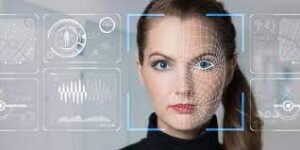Introduction:
Facial recognition technology has emerged as a powerful tool with myriad applications, ranging from enhancing security to improving user experience in various industries. However, its widespread adoption has raised significant ethical concerns regarding privacy,
Facial recognition technology has swiftly become ubiquitous in our modern world, offering unparalleled convenience and security solutions across various sector
In this blog, we’ll delve into the ethical considerations surrounding facial recognition technology and explore the delicate balance between innovation and safeguarding individual rights.
Privacy Concerns:
One of the primary ethical dilemmas associated with facial recognition technology revolves around privacy infringement. The capability of identifying individuals without their consent or knowledge raises alarms regarding the erosion of personal privacy.

Facial recognition technology has emerged as a significant concern in the realm of privacy rights, igniting debates about the balance between technological advancement and individual autonomy. Here are some of the key privacy concerns associated with facial recognition technology:
Surveillance in Public Spaces:
One of the most pressing privacy concerns is the widespread deployment of facial recognition systems in public spaces such as streets, parks, and shopping centers. Individuals often have little to no control over being scanned and identified, leading to a pervasive sense of being constantly monitored without consent.
Mass Data Collection:
Facial recognition technology enables the collection and storage of vast amounts of biometric data without individuals’ explicit consent. This mass accumulation of sensitive information raises fears about the potential for abuse, unauthorized access, and breaches of privacy.
Invasion of Personal Space:
The use of facial recognition in private settings, such as stores and workplaces, can intrude upon individuals’ personal space and erode their sense of privacy.
Risk of Misuse and Abuse:
Facial recognition technology can be misused for various purposes, including surveillance, tracking, and profiling. Without proper safeguards and oversight, there is a heightened risk of abuse, discrimination, and violations of civil liberties
Lack of Transparency:
Many facial recognition systems operate without adequate transparency, leaving individuals unaware of when, where, and how their biometric data is being captured and used. This lack of transparency undermines individuals’ ability to make informed decisions about their privacy and consent.
Accuracy and Bias:
Facial recognition algorithms are not infallible and are susceptible to errors and biases. Inaccurate or biased identification can lead to wrongful accusations, false arrests, and unwarranted scrutiny, jeopardizing individuals’ privacy and reputation.
Surveillance and Control:
Facial recognition technology has the potential to enable mass surveillance on an unprecedented scale, raising serious implications for democratic societies. Government agencies and law enforcement entities can exploit this technology to monitor citizens’ movements, associations, and activities without adequate oversight or accountability.

Facial recognition technology has raised significant ethical concerns regarding its potential for enabling mass surveillance and exerting control over individuals’ lives.
Pervasive Monitoring:
Facial recognition systems have the capacity to monitor individuals’ movements, behaviors, and interactions on a massive scale. This pervasive monitoring extends beyond public spaces to encompass private settings, workplaces,
Government Surveillance:
Government agencies and law enforcement entities have increasingly embraced facial recognition technology as a tool for enhancing security and combating crime.
Chilling Effect on Freedom:
The omnipresence of facial recognition surveillance can have a chilling effect on individuals’ exercise of fundamental rights, such as freedom of expression, assembly, and association.
Risk of Misuse:
Facial recognition technology can be misused for purposes beyond security and law enforcement, including political repression, social control, and discrimination. In the absence of robust safeguards and oversight mechanisms.
Lack of Accountability:
The proliferation of facial recognition surveillance often occurs without adequate accountability mechanisms in place. Government agencies and private entities may deploy these systems without clear guidelines, oversight, or transparency, leading to unchecked power and potential abuses of authority.
Biometric Profiling:
Facial recognition surveillance enables the creation of extensive biometric profiles containing sensitive information about individuals’ identities, behaviors, and characteristics. These profiles can be used for targeted advertising, predictive analytics, and other purposes, further exacerbating concerns about privacy, autonomy, and individual freedom.
Ethical Principles and Guidelines:
In navigating the ethical terrain of facial recognition technology, it’s imperative to adhere to foundational principles such as transparency, consent, and accountability. Developers and users of facial recognition systems must prioritize transparency by openly disclosing the purposes, capabilities, and limitations of the technology. Individuals should have the right to opt-out of facial recognition-enabled services and be informed about the collection and use of their biometric data.

Moreover, obtaining informed consent should be a prerequisite for deploying facial recognition technology, particularly in contexts where individuals’ privacy may be compromised. Consent should be meaningful, freely given, and revocable, empowering individuals to control how their biometric information is utilized.
Transparency:
Developers and users of facial recognition technology should prioritize transparency by openly disclosing the purposes, capabilities, and limitations of the technology. Individuals should be informed about when and how facial recognition is being used, as well as the potential implications for their privacy and autonomy.
Informed Consent:
Obtaining informed consent should be a fundamental principle guiding the deployment of facial recognition technology. Individuals should have the right to make autonomous decisions about the collection and use of their biometric data, with clear and accessible information provided to facilitate informed decision-making.
Data Minimization:
Facial recognition systems should adhere to the principle of data minimization, collecting only the minimum amount of biometric data necessary to achieve their intended purposes. Excessive or unnecessary data collection increases the risk of privacy breaches, data misuse, and unauthorized access.
Fairness and Non-discrimination:
Efforts should be made to mitigate bias and discrimination within facial recognition algorithms to ensure fair and equitable outcomes for all individuals. Developers should conduct regular audits and evaluations to identify and address potential biases in the data and algorithms used to train facial recognition systems.
Accountability and Oversight:
Robust regulatory frameworks and oversight mechanisms are essential to ensure accountability and mitigate potential abuses of facial recognition technology. Governments should enact laws and regulations that establish clear guidelines for the responsible use of biometric data, as well as mechanisms for monitoring compliance and addressing violations.
Privacy by Design:
Privacy considerations should be integrated into the design and development of facial recognition systems from the outset. Adopting a privacy-by-design approach involves implementing technical and organizational measures to minimize the collection, processing, and storage of biometric data, as well as ensuring strong security safeguards to protect against unauthorized access and breaches.
Conclusion:
Facial recognition technology presents a double-edged sword, offering immense benefits in terms of security, convenience, and efficiency, while also posing significant ethical challenges. Striking a balance between innovation and privacy requires a nuanced approach that prioritizes ethical principles, respects fundamental rights, and promotes transparency and accountability. By engaging in thoughtful discourse, adopting ethical guidelines, and implementing robust safeguards, we can harness the potential of facial recognition technology while upholding the values of democracy, privacy, and human dignity.

